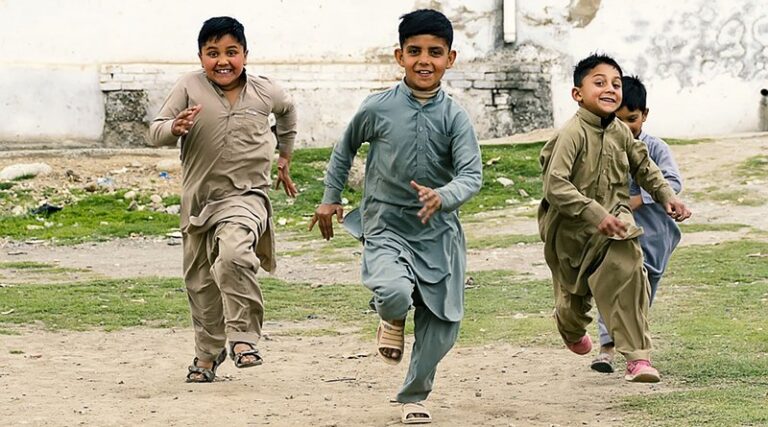The World Food Programme (WFP) continues to play a key role in eliminating food insecurity and promoting nutritional health in Pakistan. In its June 2024 country profile, WFP outlines its recent activities, challenges and strategic initiatives aimed at improving food security in the country. The article provides a detailed overview of WFP’s efforts and achievements in Pakistan, focusing on key aspects such as emergency response, nutrition support, resilience building and collaborative partnerships.
Emergency response and relief efforts
In June 2024, Pakistan was hit by several natural disasters, including floods and landslides, severely impacting food security and livelihoods in various regions. WFP responded quickly to these emergencies, providing crucial food assistance to the most vulnerable. Emergency food distributions were conducted in the most affected areas, ensuring that affected families received the rations they needed to meet their immediate nutritional needs.
WFP’s emergency response did not end with food distribution. The organization also worked to improve access to clean water and sanitation, which are essential to prevent the spread of disease during crises such as these. In addition, WFP worked with local authorities and humanitarian partners to ensure a comprehensive and effective response to the disaster.
Nutritional support initiatives
Malnutrition remains a major challenge in Pakistan, especially among children and pregnant and lactating women. To address this issue, WFP implements various nutrition intervention programs aimed at improving dietary diversity and nutrient intake among vulnerable groups. These programs include the provision of special nutritious foods, nutrition education and awareness campaigns to promote healthy eating habits.
One notable initiative highlighted in the June 2024 brief is WFP’s collaboration with local health centers to deliver targeted nutrition interventions. By working closely with community health workers, WFP is reaching remote and underserved areas to ensure people in need receive timely and appropriate nutrition support. This integrated approach not only addresses immediate nutritional deficiencies but also promotes long-term health and well-being.
Building resilience and livelihoods
In addition to emergency relief and nutrition assistance, WFP is focused on building resilience and improving livelihoods in Pakistan. The June 2024 country brief outlines several resilience-building projects aimed at empowering communities and reducing vulnerability to future shocks. These projects include skills training, infrastructure development and promoting climate-smart agricultural practices.
One of the key initiatives in this regard is WFP’s support for smallholder farmers. By providing training on sustainable agricultural techniques and facilitating access to markets, WFP helps farmers increase their productivity and income, which in turn strengthens food security at the household and community levels. In addition, WFP focuses on gender equality, ensuring that women farmers have equal opportunities and resources to succeed in the agricultural sector.
Collaborative Partnerships and Strategic Planning
WFP’s work in Pakistan is underpinned by strong partnerships with government agencies, non-governmental organizations and other stakeholders. These partnerships are essential for the effective implementation of food security and nutrition programs across the country. The June 2024 brief highlights the importance of these partnerships in achieving WFP’s strategic objectives:
For example, WFP works closely with the Government of Pakistan to align its programs with the country’s priorities and policies. This collaboration ensures that WFP’s interventions are sustainable and have long-term impact. Additionally, WFP partners with local NGOs to leverage their expertise and reach in different regions. These partnerships enable WFP to expand its reach and provide more comprehensive assistance to people in need.
WFP’s 2024-2025 strategic plan also emphasizes the importance of data-driven decision-making. Collecting and analysing data on food security and nutrition trends allows WFP to tailor interventions to address specific needs and challenges. This approach improves the effectiveness and efficiency of WFP’s programs and ensures optimal use of resources.
Issues and future directions
While WFP has made great strides in improving food security and nutrition in Pakistan, several challenges remain. Political instability, economic constraints and environmental hazards continue to threaten food security in the country. WFP recognizes these challenges and is committed to adapting its strategies to navigate these complex situations.
Going forward, WFP aims to scale up its resilience-building efforts and reach more vulnerable communities. By fostering innovation and leveraging technology, WFP aims to increase the effectiveness of its programs and create sustainable solutions to food insecurity. Additionally, WFP plans to strengthen partnerships with the private sector to tap new resources and expertise to support its mission.
WFP Pakistan country profile June 2024 provides a comprehensive overview of the organization’s ongoing efforts to combat food insecurity and malnutrition in the country. Through emergency response, nutrition support, resilience building and strategic partnerships, WFP continues to have a significant impact on the lives of millions of Pakistanis. As WFP moves forward, its commitment to innovation, collaboration and data-driven strategies will be essential to achieving a more food secure and resilient Pakistan.

